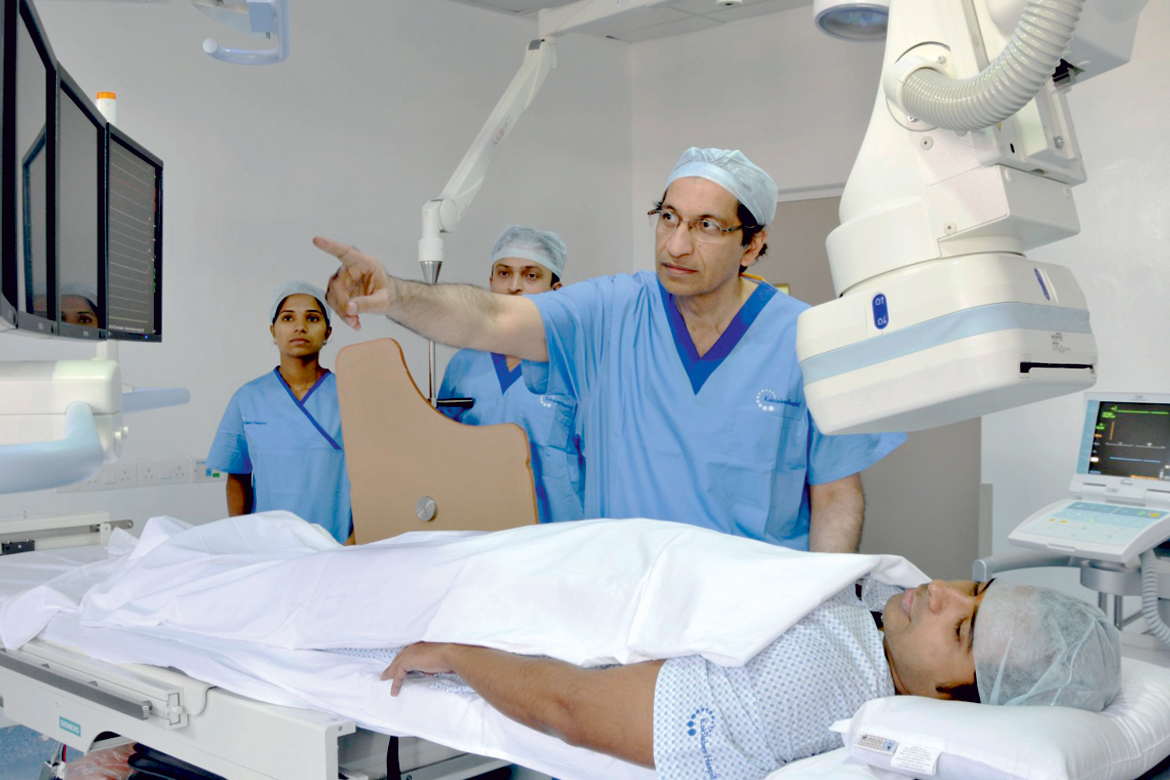Heart Failure or Congestive Cardiac Failure results from sub optimal functioning of the heart. Heart failure could be due to various reasons. Most common cause of heart failure is a previous heart attack which has resulted in weakening of the heart muscle. Some of the other causes of heart failure include heart valve disease, high blood pressure, disease of the heart muscle (cardiomyopathy), drugs or chemicals (alcohol, cocaine or some drugs used in cancer treatment), heart rhythm abnormalities (cardiac arrhythmias) or other medical conditions, such as thyroid disease, anaemia, etc.
More than 2300 Cardiac Surgeries performed in Adults & Children with world class outcomes
After initial consultation and examination the following investigations are recommended:
- Electrocardiogram (ECG)
- Echocardiogram
- Chest X-ray
- Blood Tests (to assess thyroid function, kidney function, to rule out anaemia and BNP)
- Based on the results of these initial investigations further tests (cardiac MRI scan, coronary angiogram, etc.) may be recommended

Assessing The Severity
Ejection fraction (EF) is calculated through Echocardiogram. EF is often used to grade severity of systolic heart failure. EF for a normal heart is over 50%. However, in patients with diastolic heart failure, EF may be normal.
Severity of heart failure is also assessed based on the symptoms experienced by the patient.
- Class 1 (Very Mild)
Ordinary physical activity does not cause breathlessness, fatigue (extreme tiredness), or palpitations - Class 2 (Mild)
Comfortable at rest. However, ordinary physical activity such as walking causes some symptoms - Class 3 (Moderate)
Although comfortable at rest, slight physical activity, such as dressing causes breathlessness or fatigue - Class 4 (Severe)
Unable to carry out any physical activity without developing breathlessness, fatigue, or palpitations. Symptoms are often present even at rest.
Management
Following the diagnosis of heart failure and its cause, patients are started on medication to improve their symptoms and at the same time attempts are made to treat the underlying cause as well. The commonly used medications in treatment of heart failure are as below:
- Angiotensin-Converting Enzyme Inhibitors
- Angiotensin-II Receptor Antagonists
- Beta-Blockers
- Diuretics
- Aldosterone antagonists
- Digoxin
- Ivabradin, Trimetazidine and Carnitine
Patients are advised lifestyle changes including salt restricted diet, daily weight monitoring, regular blood pressure monitoring, diabetes control (in case of diabetic patients) and regular exercise regime.
Invasive Therapies
- After initial treatment with medications some select group of patients (who have severe left ventricular dysfunction) are advised Cardiac Device Therapy in addition to the above medications
- Patients with advanced heart failure who are at risk of heart rhythm abnormalities would benefit from implantation of Implantable Cardioverter Defibrillator (ICD) device (similar to a pacemaker) which would detect and treat dangerously fast heart rhythms
- Select group of patients with concomitant heart failure and delayed electrical conduction in the ventricles would benefit from implantation of a special type of pacemaker called biventricular pacemaker, also known as Cardiac Resynchronisation Therapy Pacemaker (CRTP)
- A device with both ICD and CRT capabilities is called a combo device or Cardiac Resynchronisation Therapy Defibrillator (CRTD)
- Large clinical studies have shown that both ICD and CRT devices improve longevity in heart failure patients. CRT devices in addition also confer improved quality of life and reduce number of hospitalisations due to heart failure
- Patients with heart failure and recurrent anginal symptoms have been shown to benefit from the use of Enhanced External Counter Pulsation (ECP) Therapy
All of the above treatments are available at Kokilaben Hospital’s dedicated Heart Failure Clinic where a thorough assessment of patients with a presumed diagnosis of heart failure is made, further investigations carried out, following which suitable above mentioned therapies are offered.
 Back to Site
Back to Site